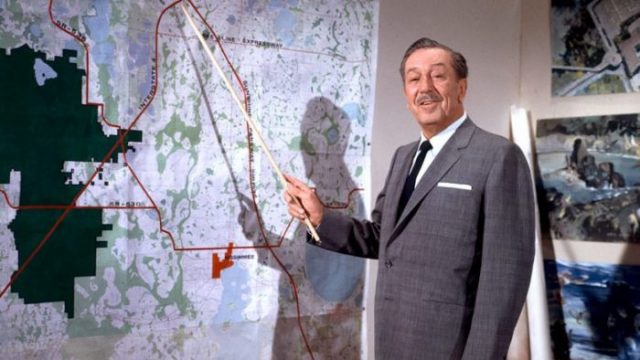When Walt Disney died in 1966, the first thing the company did was try to keep running things the way Walt would. This is responsible for two things. One, it produced serious stagnation in the company, leading to some of the weakest years for production. Two, it went against the way Walt would have done things. There is a legend that Walt left specific instructions for how the comapny would be run in his absence, and that frankly goes against a lot of what’s noteworthy about Walt the Man. He wasn’t perfect, and we’ll be talking about some of those imperfections, but a lot of what has happened to the company since his death takes the wrong message from his life.
Okay, so he hated unions, and goodness but the company has held onto that. He wasn’t really racist by the standards of his era, but that is still awfully racist by our standards. Likewise sexist and pretty much any other bigotry you care to mention. I’m not going to even try defend him on that score beyond saying that his bigotry does get exaggerated, and I’m not sure why we’d go on about Walt’s exaggerated anti-Semitism when we could be talking about Henry Ford or Charles Lindbergh instead. Because maybe we should start with the guy who is the only American mentioned positively in Mein Kampf or the one who accepted an actual medal from the Third Reich.
Likewise, I don’t honestly know how Walt would feel about the company’s obsession with making ever more money. Oh, Walt didn’t like being poor, goodness knows, and he liked it even less when the company was poor, because then they couldn’t do the bright, shiny things he was imagining. One of the first things I remember seeing on the Disney Channel as a child was a thing where a bunch of people who’d known Walt—there were a lot more of those around at the time—talking about how Roy was really the one who understood money and how Walt’s ideas were considered crazy at the time. So I don’t know that Walt would have loved how much the park was charging for everything, but at the same time, he probably would’ve seen it as better than begging for corporate sponsorship for half the park.
But what people don’t realize is that Walt didn’t like sequels. The studio’s gone pretty all-in on them, of course, but Walt himself? He accepted Son of Flubber, because there were jokes from The Absent-Minded Professor that didn’t fit with the movie they had, but there are not a lot of sequels from Walt’s lifetime even when there’s obvious set-up for them. Savage Sam is the only other one from his lifetime that I can think of, and hardly anyone remembers it exists. None of the animated movies from his lifetime got sequels except Saludos Amigos, and that’s tied into the whole “Good Neighbor” thing where they were getting money from the US government.
Sure, probably the reason they didn’t do Through the Looking-Glass was that they’d already mined most of its best material for Alice in Wonderland (it’s notoriously difficult to do a straightforward adaptation of those books), but still. Walt didn’t like sequels, and that was what ruled at Disney for the most part. And while there are several examples of shorts that were remade in colour, I don’t think he would’ve been all that into the various live action remakes. Especially not the “live action” remakes—Disney didn’t submit The Lion King for animation consideration to the Golden Globes this year. The Hollywood Foreign Press Association did that all on their own, because Disney doesn’t want to acknowledge that it’s animated. Which it is.
About six months ago, the Dissolve Couch read the Lux Radio Theatre version of Snow White and the Seven Dwarfs, which included an actual appearance from Walt Disney. I’m sure it was scripted, because that whole show was scripted, but we came across a quote that struck all of us at the time (especially coming, as it did, so soon after his statement that they’d never do Hamlet).
Never do anything that somebody else can do better. That’s why we ordinarily sidestep stories that could be done successfully in live action instead of animated action.
Sigh. So yeah, Walt wouldn’t have loved the very idea of the new Lion King. He also encouraged individual creativity more than I think the current bigwigs realize—while the movies had to be standardized, of course, because movies have to be, you can see very distinct styles within each one, and he encouraged people like Mary Blair, who gave the films a distinctive look. Or Bill Peet, who seems to have been given a pretty free hand with the look of Maleficent’s goons. And so forth.
My version of Walt is probably not like the real one, of course. Any more than the one idolized at corporate headquarters is. But I flatter myself that mine has a greater understanding of Walt’s attitude toward certain things. He was always proud of the studio’s creative developments and didn’t mind running in the red if it meant making fine movies. Though I’ll admit that version of Walt also didn’t treat his employees the best.

